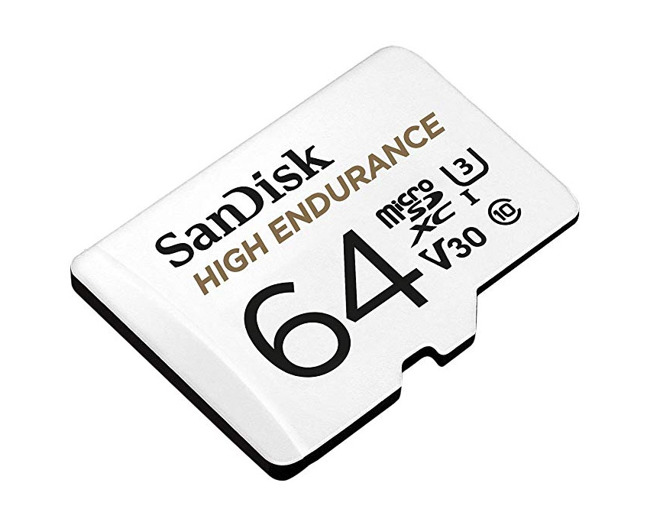Huawei tossed from SD Association, Wi-Fi Alliance, RAM spec group
Compounding Huawei's woes, the Chinese company has been removed not just from the Wi-Fi Alliance, and RAM spec controller JEDEC, but also from the SD Association, preventing it from offering official SD/microSD support in future devices.

The Association attributed the removal to the Trump administration' srecent orders involving national security, according to Nikkei. The White House has argued that equipment from Huawei and fellow Chinese firm ZTE could potentially lead to backdoors in American networks, given links to the Chinese government.
Many partners have had to sever ties with Huawei due to both an executive order and the firm being added to an "Entity List," preventing it from buying from U.S. suppliers without a license. These include ARM, Google, Intel, Broadcom, Qualcomm, and others.
The U.S. did recently offer Huawei a reprieve, albeit temporary.
Meanwhile the Wi-Fi Alliance has "temporarily restricted" Huawei's membership, and the company has voluntarily split from JEDEC, a semiconductor standards organization.
The situation has left Huawei scrambling to find alternatives, and vowing to try and lift restrictions if possible. It also worsened the ongoing U.S.-China trade war, with China refusing to talk again unless the U.S. reverses course.

The Association attributed the removal to the Trump administration' srecent orders involving national security, according to Nikkei. The White House has argued that equipment from Huawei and fellow Chinese firm ZTE could potentially lead to backdoors in American networks, given links to the Chinese government.
Many partners have had to sever ties with Huawei due to both an executive order and the firm being added to an "Entity List," preventing it from buying from U.S. suppliers without a license. These include ARM, Google, Intel, Broadcom, Qualcomm, and others.
The U.S. did recently offer Huawei a reprieve, albeit temporary.
Meanwhile the Wi-Fi Alliance has "temporarily restricted" Huawei's membership, and the company has voluntarily split from JEDEC, a semiconductor standards organization.
The situation has left Huawei scrambling to find alternatives, and vowing to try and lift restrictions if possible. It also worsened the ongoing U.S.-China trade war, with China refusing to talk again unless the U.S. reverses course.

Comments
1. If trump gets a better trade deal from China, would that automatically exonerate huawei of all these security threats posed by them???
2. When it actually happens, what would be your reaction???
3. If ip theft by Chinese companies is your real concern, then why are you not asking the question to trump administration - "why huawei alone? What about the likes of xiaomi, bbk sub brands Oppo/vivo/one plus??? Are they all saints?"
4. What is the real issue with China and huawei? Is it Trade imbalance? Or Security? They are both mutually exclusive. If security is an issue, what about ZTE?
Is the bigger picture really being looked at by trump supporters in this forum??? As a neutral person from a different country, it does not look like so to me.
Is every company that uses Android in some of their products going to be a “knockoff” manufacturer?
From wiki:
Huawei had over 188,000 employees as of September 2018, around 76,000 of them engaged in Research & Development (R&D).[5][6] It has 21 R&D institutes around the world.[7][8] As of 2017 the company invested US$13.8 billion in R&D.[9][10]
In December 2018, Huawei reported that its annual revenue had risen to US$108.5 billion in 2018 (a 21% increase over 2017).[16]
Huawei might be #1 (in importance) in the 5G rollout globally if it wasn’t for the trade war. I’m as concerned about the IP theft as anyone, but Huawei is also a global innovator. Everyone is better off if we can get a deal in place ASAP.
Though I get the crying over IP theft and the deficit I have to ask however, since no American company is forced to operate in China and all companies enter China knowing full well the cost and requirements why is no one asking Apple why the fuck they give up their IP in China ? Isn't that a more prudent question ?
There's a price to pay for market access everywhere India requires local manufacturing for example, we may talk about those costs being too high and/or unfair but Apple doesn't seam to think so, otherwise why are they in China or any other place ? If that country is so despicable then why go there ?, also why is Apple or any America based conglomerates' IP always referred to as American IP ? What does America have to do with Apple property, doesn't that belong to its share holders around the world ?
Just asking coz I'm really curious i'm not American so this all seems just weird to me.
2. I would hope that Trump would stick to his guns unless Huawei opens its code for inspection, ensures that it has no backdoors, and can prove that it is not quasi-owned or controlled by the Chinese state.
3. The issue of IP theft in China will likely be addressed as part of any reasonable trade agreement with China for all Chinese companies, including all the ones you mention. If the trade agreement ends up being something solely related to trade in good and services (e.g., they buy more soybeans and let some insurance companies compete in China) and not matters of IP theft, many in the US, including me, would deem the agreement a complete failure.
4. At this point, it's conflated. But it was clearly security with Huawei. As to ZTE, you don't seem to have kept up with the news: they are now subject to oversight by the US government for the next 10 years and they had to pay a fine of $1 billion.
That's a stupid comment. I support Trump's actions on this front, but I do not support Trump politically in any way. Even many Democrats support him on this one, including Chuck Schumer and Bernie Sanders.
https://www.nytimes.com/2019/05/16/world/asia/trade-xi-jinping-trump-china-united-states.html?smid=nytcore-ios-share